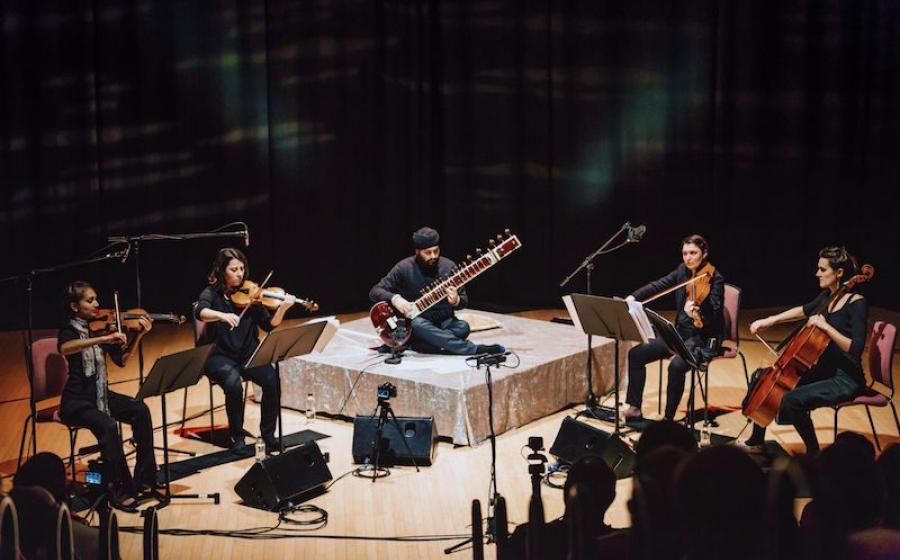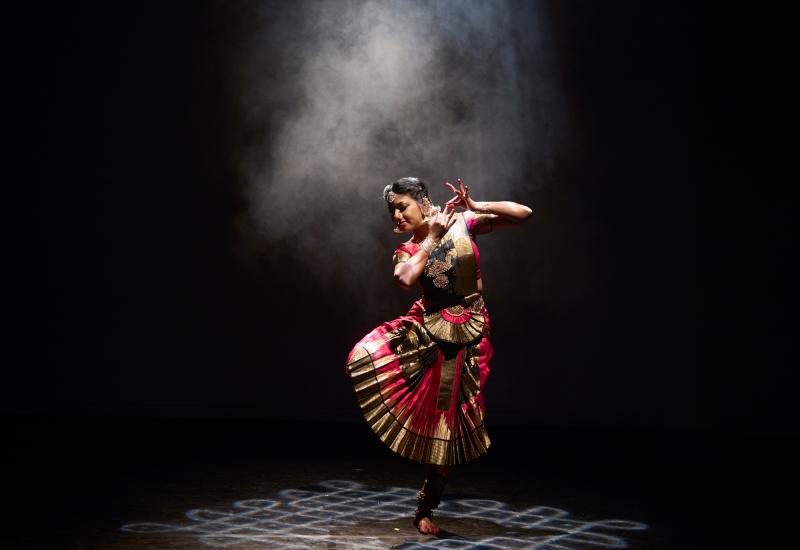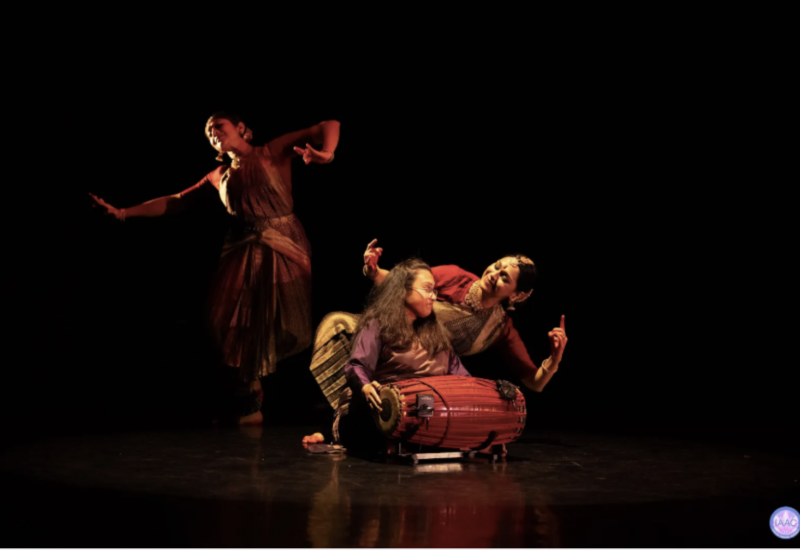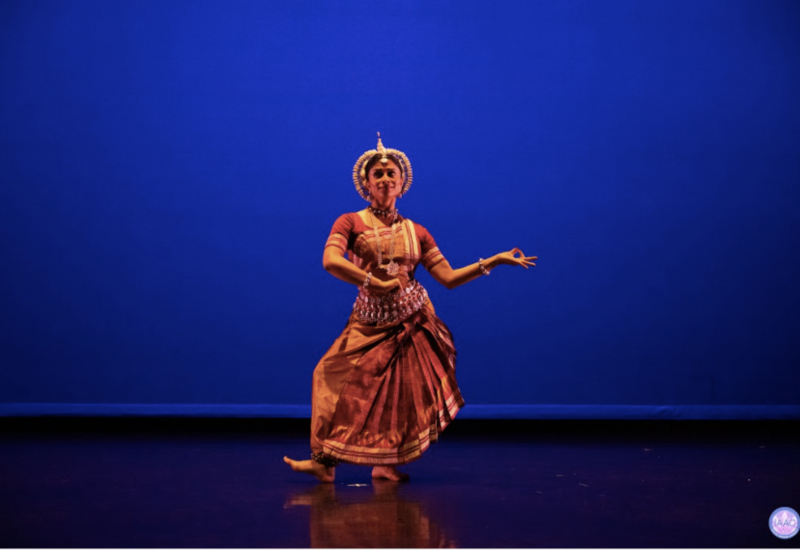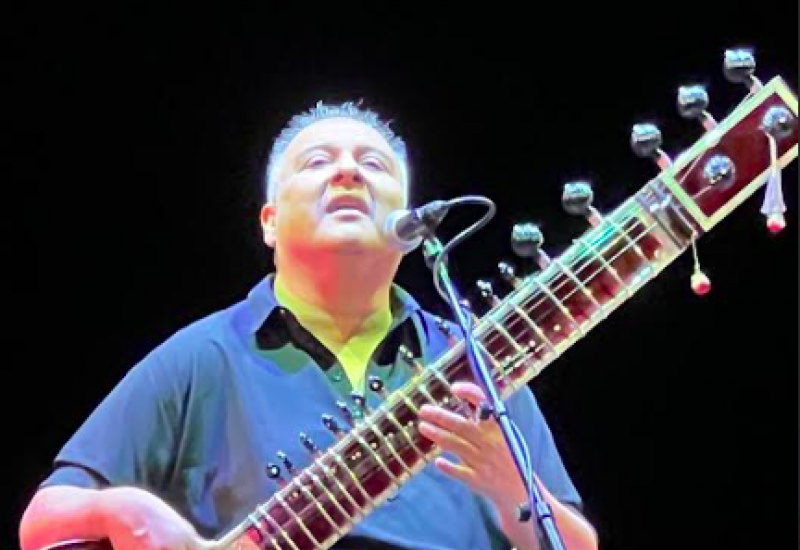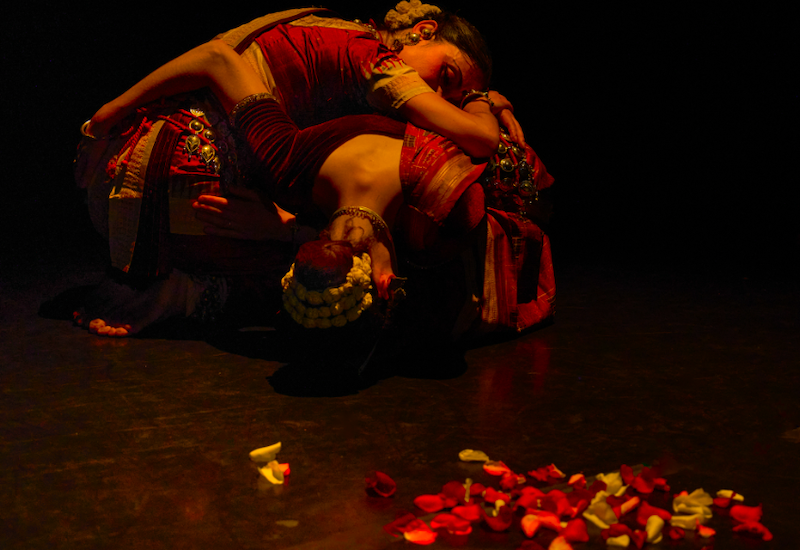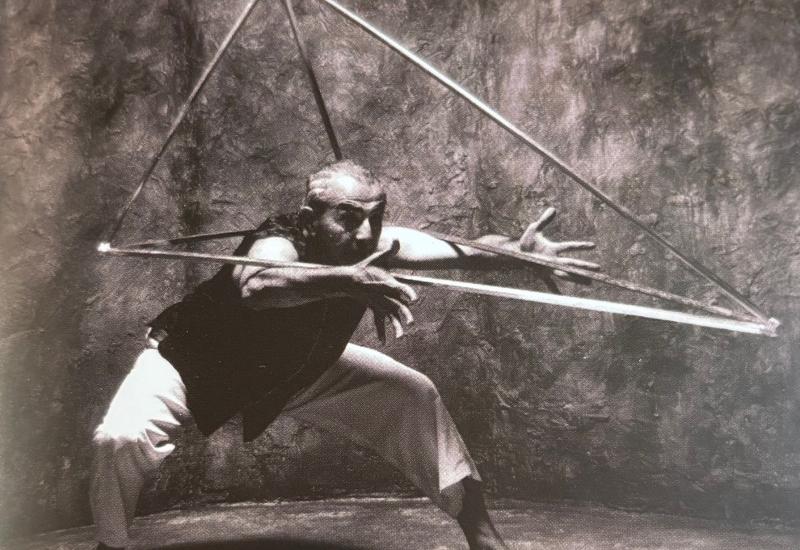The Bridge and Cicadas
The Bridge and Cicadas, Jasdeep Singh Degun, Leeds College of Music, 7 December 2016 – Reviewed by Matt Pritchard
It seems that Indian classical music in the UK at the moment is having a renaissance. Many of the British-born musicians who have spent years dedicating themselves to their respected art forms are now exploring and breaking boundaries within their music and stamping it with their own musical identity.
It is exciting to see many collaborative ensembles emerge as a result of this. It may shock purists, but these exchanges and sharing of styles allow the music to evolve – we should remember that Indian classical stalwarts such as Ustad Zakir Hussain and the late Pandit Ravi Shankar created a legacy of music that made Indian classical music accessible.
The concert hosted by Zeroclassikal on Saturday 4 March 2017, Bridge and Cicadas, was a testament to collaboration at its highest level. The acoustics of the Fraser Noble Hall, which had previously been a Church, made it the perfect venue.
The first half was presented by Leeds-born sitar player Jasdeep Singh Degun. His concerto is based on Raag Jogkauns, Gujri Todi and Chaurukeshi. The quartet comprised two violins, cello and viola. Jasdeep, who was recently awarded with a scholarship from Sky Arts Academy and is a recipient of many accolades, showed why he is the most sought-after Indian classical musician in the UK at the moment.
Jasdeep’s command over composing and scoring a concerto was marvellous to witness. Indian classical music purists may have wondered whether its unique quality of improvisation would be lost in the structure of western classical music. However, Jasdeep was able to intertwine the music in each piece, showing respect to all the ragas without compromising their salient features such as chand and melodic improvisation. The sensitivity and complementary nature of each piece was a credit to Jasdeep’s composing ability, showing a maturity in composition that very few achieve.
The second half was presented by Sarathy Korwar, a tabla player and producer from London. Sarathy explored the relationship that Indian classical musicians have with each other on stage and deconstructed their roles. For this performance, Sarathy opted for santoor and sarod. Visually the performance was striking as Sarathy used a range of technology to bring his composition to life.
Sarathy enabled each musician to explore various melodic and rhythmic games which added a playful element of the piece. Sarathy created equality on stage and re-examined the roles of ‘lead instrumentalists’. This conceptual way of presenting a so-called traditional raga is highly thought-provoking and it will be interesting to see if other Indian classical musicians will follow suit.
The Zeroclassikal Project hosts an innovative concert series that allows the artists to go beyond their art form and experiment with various genres. ‘Through a mindset of a British identity’ is what the audiences in the UK have been waiting for. One only has to attend a Zeroclassikal concert to see that the musicians play with a different level of freedom because they are provided with a specific platform to do so.

